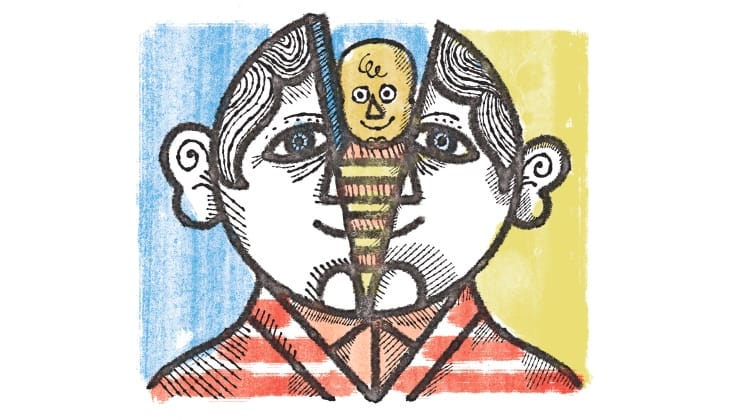This is one of the most frequently asked of frequently asked questions: As a Buddhist, do I have to believe in something like reincarnation if I have no evidence it is true? But in fact, death and rebirth are happening to us all the time.
We’ve all played with the question “When I die, who would I like to come back as?” The implication is that “I” will be reincarnated in another life. But Buddhists don’t believe in a permanent “I” or soul that goes forward from life to life—or moment to moment, for that matter. That’s why Buddhists prefer to talk about “rebirth” rather than “reincarnation”—it’s less personal. The “you” you’re currently conscious of is not a fixed identity but an ongoing process of mind and energy that is always taking new forms. According to most Buddhists, that doesn’t stop with the death of the physical body.
Death and rebirth are just larger versions of an experience we have regularly: something stops our usual stream of consciousness (a kind of death), there’s a gap, and then we’re “reborn” as our habitual tendencies kick back in. In Buddhism, these habitual patterns are also called karmic seeds, and, planted deep in the mind, they can affect what happens after death, just as they do in the next moment. Who or what is reborn? It won’t be you, but it could be the fiction of you.
Further Reading
- Do You Only Live Once? The Evidence for Rebirth, a profile of reincarnation researcher Jim Tucker
- The Tibetan Buddhist View of Death and Rebirth, a teaching by Tibetan Buddhist scholar Robert Thurman
- The Buddhist Teachings on Rebirth, a collection of wisdom from ten Buddhist teachers
- The Case for Rebirth, a review of Bhikkhu Analayo’s book on the subject
- Reincarnation: Modern Research and Traditional Buddhist Teachings, a comparison
